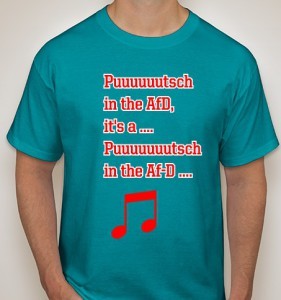Strife within the AfD

Like any new party, the AfD is made up of various groups, wings, and tendencies. Christian fundamentalists mingle with economic liberals; disappointed conservative Christian democrats mix with former members of Germany’s extreme right parties (although the AfD tries to enforce a ban on those). A year or so ago, we used to talk about “liberals”, “conservatives”, and a third faction in the middle which tried to build bridges. But now, we’re apparently down to two “wings”: Lucke’s economic liberals (who are also socially conservative), and those who want a tougher, more nationalist party. Incidentally, this split seems to be reinforced by an East-West conflict within the AfD, with the electorally successful Eastern chapters more inclined to play the right-wing populist card.
The AfD Putsch: State of Play
Counterstrike: The “Germany Resolution”
A split in the AfD in Thuringia
Commercial Break: And Then, There is Always Marcus Pretzell


Stay Tuned
Discover more from kai arzheimer
Subscribe to get the latest posts sent to your email.



RT @kai_arzheimer: Focus magazine: #AfD in Thuringia removing the whip from 2 MPs http://t.co/6brISPo020 Background on my blog http://t.co/…
RT @kai_arzheimer: Is Germany’s new right-wing party #AfD falling apart? – kai arzheimer http://t.co/xYhAZRmpHg
RT @kai_arzheimer: Is Germany’s new right-wing party #AfD falling apart? – kai arzheimer http://t.co/xYhAZRmpHg
RT @SLdeLange: “Is Germany’s New Right-Wing Party #AfD Falling Apart?” by @kai_arzheimer http://t.co/6Dq6SqQ1Fq
RT @kai_arzheimer: Is Germany’s new right-wing party #AfD falling apart? – kai arzheimer http://t.co/lnTIBHmq8h
RT @BDStanley: Prof @kai_arzheimer steals my best ideas. http://t.co/XGVn5IHwJT